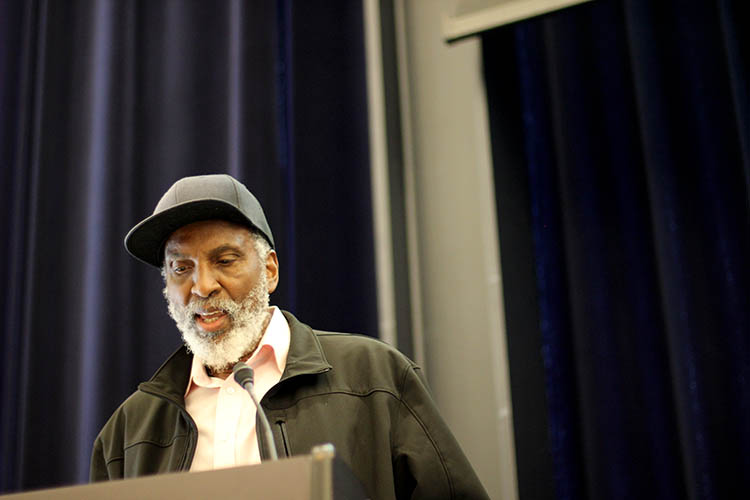Haas conference: Creating a world where everyone belongs
Haas Institute hosts global conference in pursuit of more inclusive society
April 5, 2019

Prof. john a. powell, who does not capitalize his name, will host the event. (Photo courtesy the Haas Institute for a Fair and Inclusive Society)
As racial discord, hatred and bigotry tear at the country from coast to coast, the nation’s collective response will likely be shaped by either of two conflicting approaches.
Breaking, or building a deep fear of other groups, making it easier to accept adversarial, hostile stories of “us versus them.” Or bridging, calling on citizens to imagine a larger, more inclusive “we.”
For john a. powell, the choice is clear. “Of all the forces shaping politics and power around the world, perhaps none are more important than our sense of who we are, and who we are becoming,” says powell, director of the UC Berkeley’s Haas Institute for a Fair and Inclusive Society. “Bridging means acknowledging our shared humanity, rejecting that there is a “them” and moving toward a future where there is instead a new ‘us.’”
Register
Registration closes Sunday. More information on this event and registration are available online.
powell and an A-list of activists, intellectuals and organizers will gather beginning Monday for three days in Oakland as part of the institute’s third Othering and Belonging Conference, where nearly 1,500 attendees will designate bridging as a key to building communities of belonging here and around the world.
“By communities of belonging, we mean those that embrace and see the value of difference, who understand our shared humanity, and where institutions are organized to serve people,” says powell, who also will serve as conference chair.
Among the guests:
The Rev. William J. Barber II, NFL star Michael Bennett, Pulitzer Prize- winner Rachel Kaadzi Ghansah, star of the TV show “Queen Sugar” Dawn-Lyen Gardner, Community Change president Dorian Warren and worldwide Women’s March co-organizer Linda Sarsour.
To underline the intent to connect with social change leaders internationally, guests from dozens of countries have also been invited, including Mamadou Goita, a socio-economist from Mali who works closely with farmers’ organizations in Africa and on other continents, and Bertha Zuñiga Caceras from Honduras. She is the daughter of assassinated environmentalist and indigenous rights activist Berta Cáceres.
Government leaders who will attend include Adrienne Clarkson, the former governor general of Canada; New York City Deputy Mayor for Strategic Policy Initiatives Phil Thompson; Julie Nelson, director of the Government Alliance on Race and Equity, and a cohort of local government workers. Disability rights advocate Haben Girma and voting rights restoration activist Desmond Meade are also among the dozens of notable speakers appearing at the conference.

A scene from the 2017 conference. (Photo courtesy the Haas Institute for a Fair and Inclusive Society)
Discussions will cover topics such as understanding the threat of rising authoritarianism, bolstering a multiracial democracy and how to understand belonging in the contexts or realms of artificial intelligence, economics, mind science and disability justice.
The conference will provide a forum for people from all backgrounds to learn about how “othering and belonging” is useful in challenging exclusionary systems and politics. The program is designed to answer the question: “How do we make belonging real?” and will look at how bridging can be used to defuse social anxieties and tensions between different groups, while not flattening differences.
Barber, a leader of the Poor People’s Campaign and a recent MacArthur Genius Award recipient, will deliver the closing keynote.
“We need a new moral revolution of values,” Barber has said. “True preaching cannot rest on a page, sit in a song or travel on a tweet alone. Absolutely nothing would be more tragic than for us to turn back now. It’s movement time.”
Over the years, Barber has built a reputation for bringing together inclusive coalitions that are multiracial and interfaith, working across race, gender, age and class lines, and that are dedicated to addressing poverty, inequality and systemic racism.
Conference highlights include artistic performances by Christian Parrish Takes the Gun, a Native American dancer and innovative hip hop artist known professionally as Supaman; Aswat Ensemble, a multiracial Arabic music group from the Bay Area; and Contra-Tiempo, a multilingual dance group based in Los Angeles.